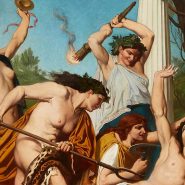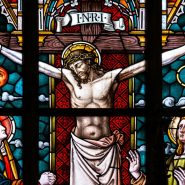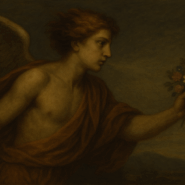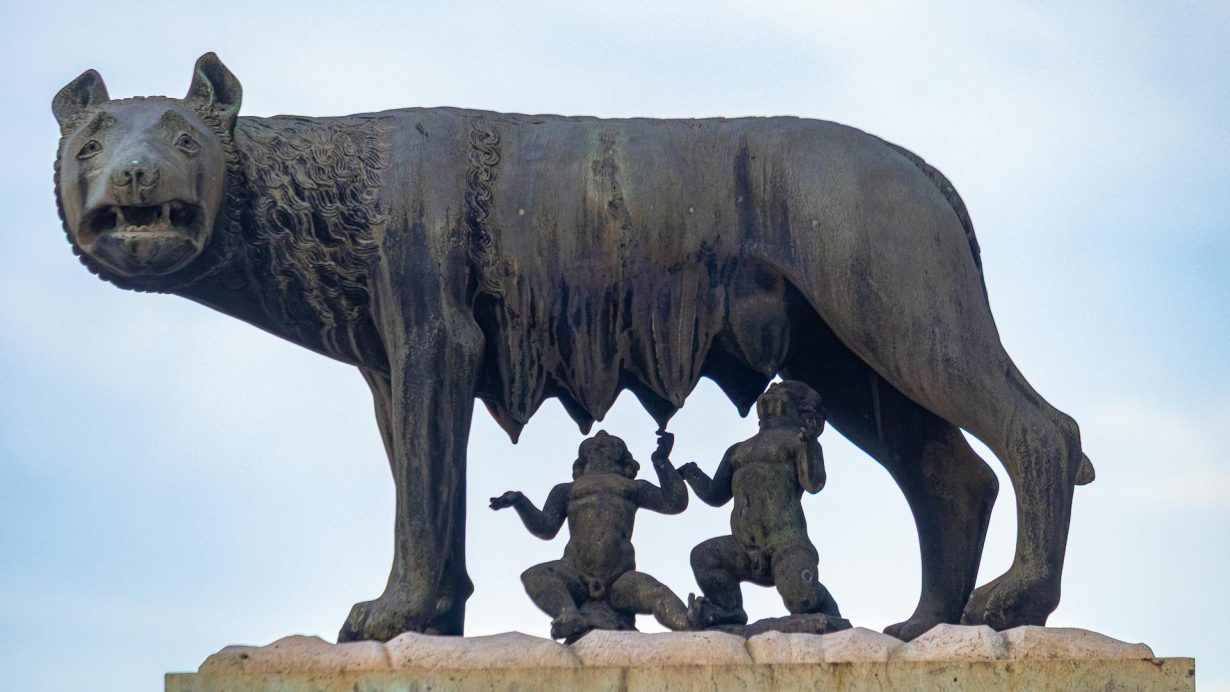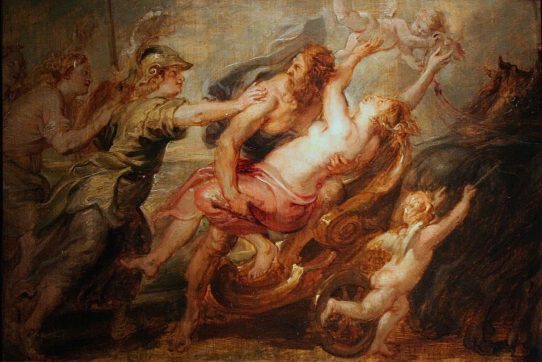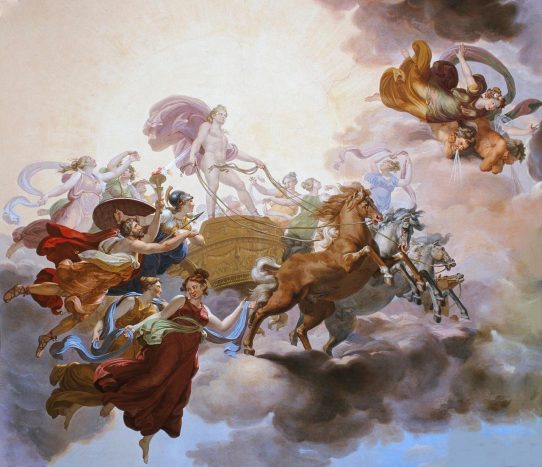The tale of Romulus and Remus lies at the very heart of Roman identity — a story of destiny, divine favor, and the birth of an empire destined to rule the world. It is a myth of brothers and betrayal, courage and creation, and the unbreakable bond between gods and men.
From the moment they were cast into the wild to their rise as founders of Rome, the twins embodied the eternal spirit of the city itself: strength born from struggle, greatness rising from humble beginnings.
Through their story, the Romans traced their divine lineage and their unyielding belief in fate’s design.
The Prophecy of Destiny
Before Rome was built, before its hills bore the echo of human steps, the kingdom of Alba Longa reigned in Latium, founded by Ascanius, son of Aeneas. Its throne passed from king to king until it came to Numitor, a wise and just ruler. Yet envy stirred within his brother, Amulius, who seized the throne and cast Numitor into exile.
To secure his stolen power, Amulius forced Numitor’s daughter, Rhea Silvia, to become a Vestal Virgin, binding her to a life of chastity so that no heirs might threaten his rule. But the will of the gods cannot be undone.
One night, as she tended the sacred flame, the war god Mars appeared to her in divine splendor, and from their union were born twin sons — Romulus and Remus — children of both mortal lineage and immortal power.
The Abandonment and Rescue
When Amulius learned of the twins, he was seized with fear. The prophecy foretold that Numitor’s bloodline would one day reclaim the throne, and he ordered the infants cast into the River Tiber to drown. The servants tasked with this deed, moved by pity, placed the twins in a cradle instead and set them adrift upon the swollen waters.
Fate guided the vessel gently to rest beneath the Palatine Hill, where a fig tree took root — the Ficus Ruminalis — symbol of nourishment and destiny. There, a she-wolf discovered the crying children and, with divine instinct, nursed them as her own. A woodpecker, sacred to Mars, brought them food, ensuring their survival.
Soon after, the twins were found by a shepherd named Faustulus and his wife, Acca Larentia, who raised them in their humble home, unaware of their royal blood.
Romulus and Remus in Youth
As the twins grew, their strength and courage set them apart from other shepherds. They hunted wild beasts, defended flocks from raiders, and led bands of young men in daring exploits. Their leadership and charisma drew admiration, but their noble spirit drew envy as well.
One day, during a skirmish between shepherds, Remus was captured and brought before King Amulius. There, his noble bearing revealed his true descent. Faustulus, realizing the truth, urged Romulus to rescue his brother and reclaim their birthright.
With fierce resolve, Romulus gathered his followers, stormed Alba Longa, and slew Amulius in battle. The brothers restored the throne to their grandfather Numitor, fulfilling the prophecy and reclaiming their destiny.
The Founding of a New City
With justice restored, the twins turned to a new purpose — founding a city of their own where fate had once spared them. They returned to the banks of the Tiber, the place of their salvation, and began to plan the birth of Rome. But the brothers quarreled over which hill to build upon: Romulus favored the Palatine Hill, while Remus preferred the Aventine.
To settle the dispute, they sought the gods’ will through augury — the reading of omens in the flight of birds. Remus saw six vultures first, but Romulus claimed to have seen twelve, and each insisted the gods favored him. Pride turned to anger, and the quarrel escalated into violence. In the struggle, Remus was slain — whether by accident or Romulus’s own hand remains uncertain.
Standing over his fallen brother, Romulus cried, “So perish whoever crosses these walls!” and thus consecrated the city with blood and sorrow.
The Birth of Rome
After Remus’s death, Romulus set himself to the sacred task of founding the new city. He traced its boundaries with a plow drawn by a white bull and cow, symbolizing purity and prosperity. He named it Roma, after himself, and became its first king.
To populate the city, he opened an asylum on the Capitoline Hill, welcoming exiles, freedmen, and wanderers. Yet the city lacked women, and without families, it could not endure. To secure the future of Rome, Romulus devised the Rape of the Sabine Women — an event that would unite rather than divide, for through it Rome gained not only wives but alliances.
From that union of conflict and reconciliation, Rome’s strength was born: a nation forged from many peoples, bound by law, courage, and divine will.
The Legacy of Romulus
Under Romulus’s rule, Rome grew into a powerful city. He established laws, organized the army, and formed the Senate — institutions that would shape the Republic centuries later. Yet his destiny was not to die as other men.
During a stormy day at the Field of Mars, Romulus vanished from sight, taken up to the heavens in a whirlwind of thunder and light. Some said he was torn apart by senators jealous of his power; others believed the gods had lifted him to immortality.
In time, he was worshipped as the god Quirinus, protector of the Roman people. Through him, the divine and mortal threads of Rome’s destiny were forever intertwined.
Meaning and Legacy
The story of Romulus and Remus was more than a myth — it was Rome’s origin story, a sacred reflection of its values. From the twins’ miraculous survival and the intervention of Mars, Romans saw divine favor upon their destiny. The fratricide of Remus reminded them of the cost of ambition and the fragility of unity, while Romulus’s triumph embodied Rome’s unyielding will to rise above adversity.
Every temple, law, and conquest traced its lineage to that first moment beside the Tiber — when courage, faith, and fate converged to found the eternal city.
Gods mentioned: Mars, Vesta, Jupiter.
Adapted from public-domain materials, including Project Gutenberg and Wikisource.
